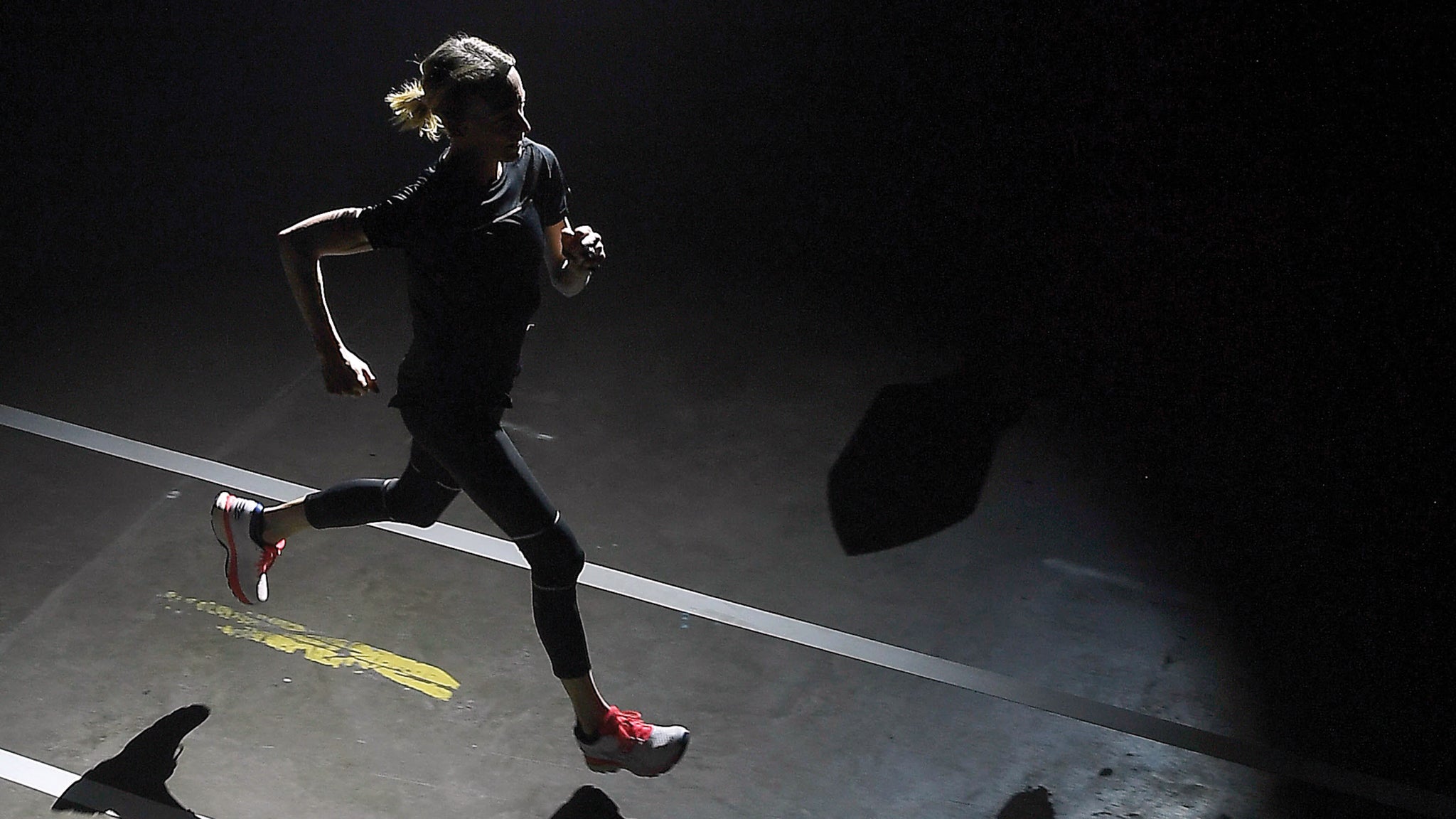Purpose. Sound intangible? Even a little woo-woo? It’s not. Purpose can infuse balance into your day-to-day, help you understand what really matters (and learn how to say no to what doesn’t), and leave you more time for those just-because passions. Plus, a growing field of research finds it is also a deep driver of both physical and mental health. Living a life of purpose can quite literally change the way genes are expressed in your body for the better.
In short: Purpose can help you reach your full potential. Fortunately, there’s a formula for finding it.
Find Your Gift
On a chalkboard in American marathon record holder Deena Kastor’s California home, there’s a handwritten Picasso quote: “The meaning of life is to find your gift. The purpose of life is to give it away.”
Ask modern day researchers for a scientific definition of purpose and you’ll get something pretty similar to the artist’s interpretation: Purpose is a long-term intention that is inspired, at least in part, by a desire to make a difference in the world beyond the self, explains Kendall Cotton Bronk, Ph.D., an associate professor at Claremont Graduate University who studies it. “It’s something that you care deeply about — so deeply that you’re willing to dedicate your own time, energy, and resources toward the pursuit.”
Despite a culture that chases achievements and Instagram glory, purpose isn’t exactly defined by PRs. “It’s often at the intersection of a special skill or talent and making a meaningful difference in the world beyond themselves where people find purpose,” says Cotton Bronk.
Years ago, at the brink of burnout, Kastor started working with legendary coach Joe Vigil, who helped her learn how to train her mind. The style of thinking not only boosted her performance. It changed her life. “He taught me that the value of what we have — whether it’s time, money, or knowledge — increases when we share it with others,” she says. In 2018, she released the book Let Your Mind Run: A Memoir of Thinking My Way to Victory.
“Having some truth that running has taught me means nothing if I keep it to myself,” says Kastor. “Now that my career is over, the value is in passing it along to others so they can grow from a new place and not have to reinvent the wheel.”
What’s Your Passion?
Sometimes, passions help us find purpose. “People who care deeply about things are probably more likely to identify a purpose for their lives,” explains Cotton Bronk. But ‘passion’ is a buzzword that’s often wildly misunderstood, says performance running coach Steve Magness, author of The Passion Paradox.
“We have this misnomer of going and ‘finding’ your passion and then thinking everything will take care of itself.” Think about passion like jet fuel that helps point you toward your guiding star, a.k.a., your purpose, explains Magness. Running, for example, could be a passion that helps guide you toward your purpose. It could be the stress relief that allows you to go back and put in work on a project.
But passion is tricky. Philosophers often talk about two different elements of it: a constructive form and an obsessive form. If you’re dedicating every ounce of energy to something you’re ‘passionate’ about, you can wind up burnt out or lost, wondering “what now?” when that passion comes to an end. If you’re passionate simply for passion’s sake without a purpose, it’s easy to get derailed.
That’s why passion works best in tandem with other things in your life. “Balance means having the ability to step away and be a realist,” says Magness. “It’s being able to decide how invested you want to be in certain things.” (Read: It’s okay to not be the best at everything in your life, and certainly not all at the same time.)
See the Bigger Picture
For Olympic runner and three-time U.S. national champion Alysia Montaño, it was a deliberate decision — to have a career and a family — that helped her find purpose. “When you’re a singular person, especially in the realm of professional running, it’s this head-down grind,” she says. “When I had my daughter, it allowed me an opportunity to see the world much bigger.”
Looking through the eyes of her firstborn helped Montaño identify things that she didn’t want her daughter growing up thinking were normal. It led her to speak out against companies such as Nike, exposing the sports industry for their lack of fair maternity leave and postpartum protection; working with companies that put mothers first; and starting a foundation that supports postpartum women.
“My daughter helped me realize that it’s not just about me, it really isn’t. And I’m happy that way. I’m so happy that it isn’t just about me. I’m so happy that I chose motherhood, especially in this day and age where I think it’s really hard for women to choose motherhood.”
Shortly after Montaño’s New York Times piece, Nike and other athletic brands changed their maternity leave policies for athletes — a piece of Montaño’s purpose puzzle. “I want to give people ownership to make the choices they want to make. I want to be the voice that allows that person who is not able to quite grasp that see, this is my life and I deserve it.”
But, Montaño knows there’s always work to be done. “Most people do not fully achieve their purpose in life because purposes are generally more abstract than that,” explains Cotton Bronk. “There can be victories along the way that lead to a sense of accomplishment, but in general, the sense of satisfaction associated with leading a life of purpose comes from knowing you’re moving in the right direction — in a personally meaningful direction.”
How to Find Your Purpose
Haven’t had a big ‘aha’ moment? Narrow in on your purpose with these expert-backed tips.
Dabble. Not quite sure what you’re passionate about? Trying different activities (taking a photography class, finally learning how to garden) can expose you to passions and steer you toward purpose, says Magness.
Think Long-Term. Imagine what you want your life to look like in 20 years and why you want it to look that way. These two questions are thought-starters that help people dig into purpose, says Cotton Bronk.
Enlist the Help of Others. Send an email out to a coach, a friend, and a mentor and ask them to tell you how they think you’ll leave your mark. “Sometimes the people who know us well have some inkling that can help illuminate the idea for ourselves,” says Cotton Bronk.


